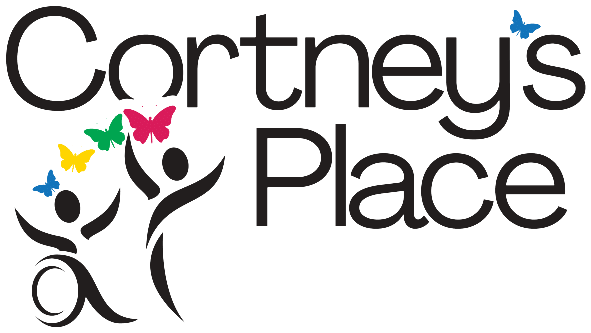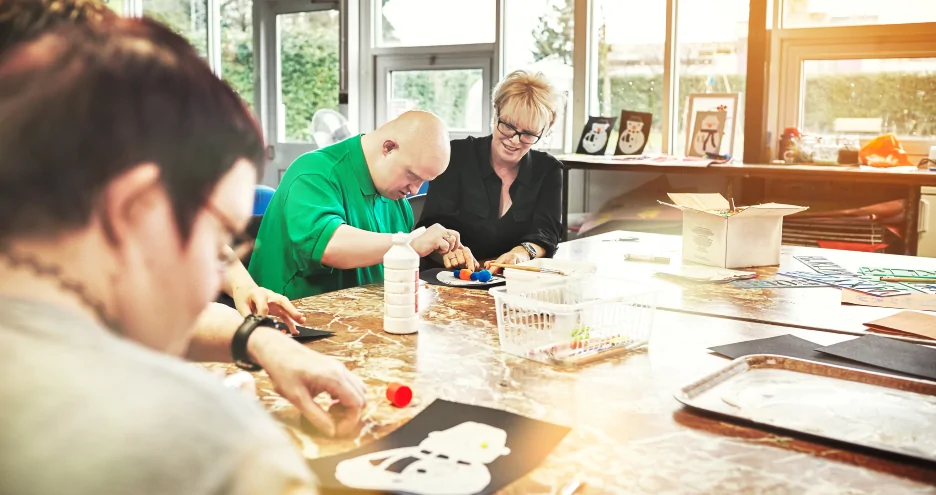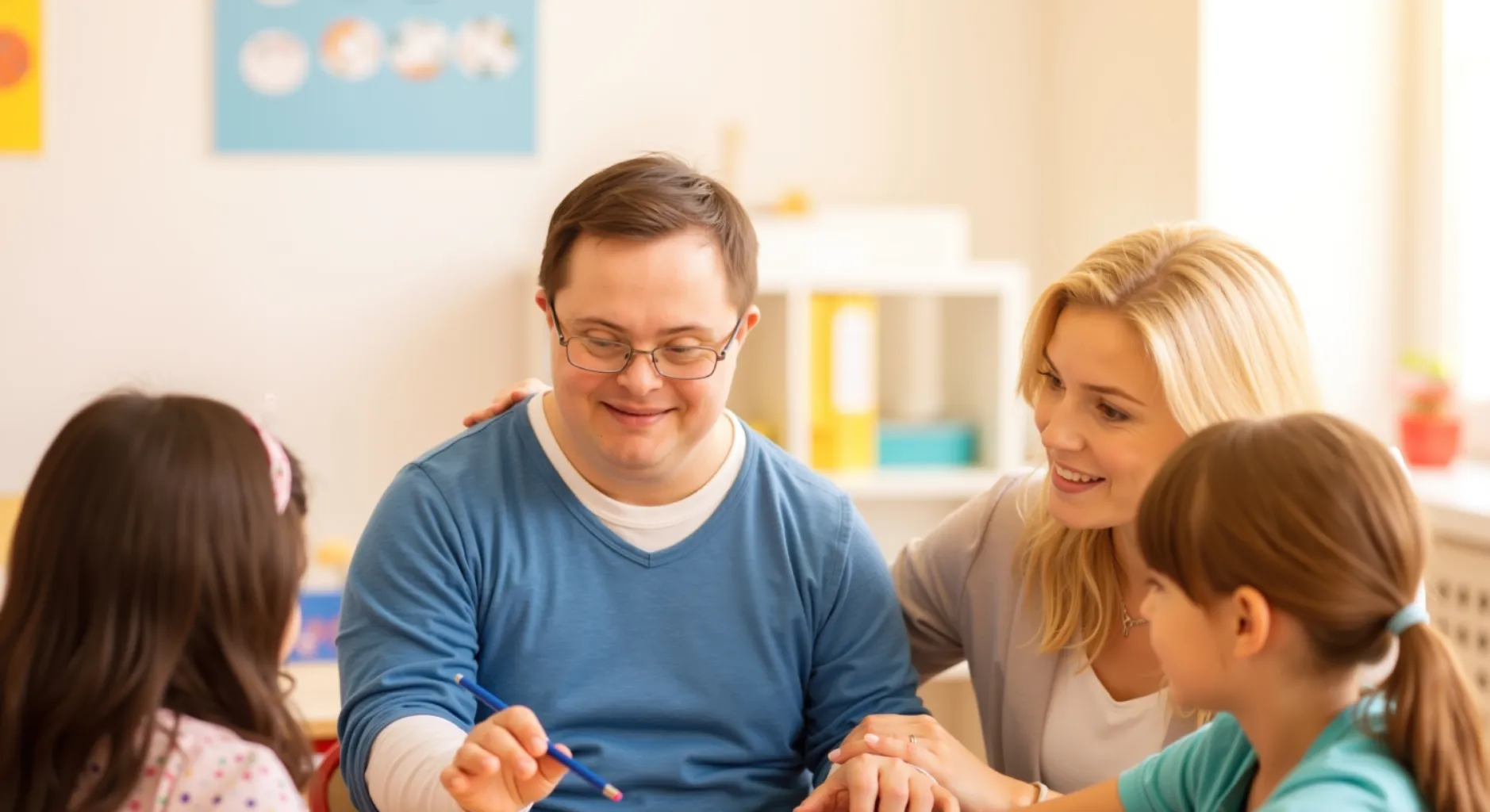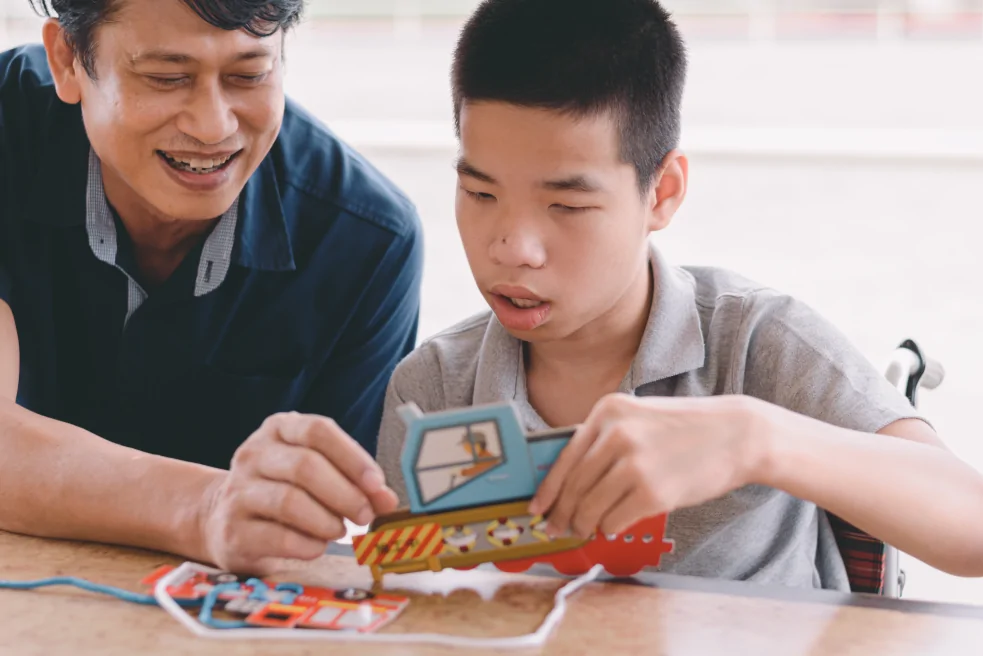Table of Contents
Helping Adults with Learning Disabilities: Creating a Circle of Love and Support
Everyone wants to feel accepted, valued, and understood. Adults with learning disabilities often face extra challenges in finding that sense of belonging because of social barriers, misunderstandings, or limited opportunities. When family, friends, professionals, and community members come together, they provide more than help—they create a supportive circle filled with care and connection.
At Cortney’s Place, we see this every day. We see the difference it makes when people are surrounded not by limitations, but by encouragement. The impact is powerful: confidence grows, skills develop, and individuals flourish in ways that go far beyond expectations.
Understanding Learning Disabilities in Adulthood
A learning disability is not a reflection of intelligence—it is a neurological difference that affects how a person receives, processes, or communicates information. These differences can impact skills such as reading, writing, comprehension, organization, and time management. While they may require different approaches to learning, they do not limit a person’s potential to lead a fulfilling, independent life.
Common Types and Challenges
- Dyslexia – This condition affects reading, spelling, and language processing, making it more challenging to decode written words. Adults with dyslexia may require additional time to read or write, yet they often shine in creative thinking and verbal communication. With proper tools and strategies, they can thrive in both academic and workplace settings.
- Dyscalculia – This affects a person’s ability to understand numbers, perform calculations, and work with mathematical concepts. It can make activities such as budgeting, measuring, or managing schedules more difficult. Many people with dyscalculia find that using visual aids, practical examples, and regular practice helps them strengthen their numerical skills.
- Auditory Processing Disorder – This condition influences how the brain processes sounds, making it harder to follow verbal instructions or tell similar sounds apart. People with this challenge may ask for things to be repeated or rely on written instructions for clarity. Supportive environments help minimize confusion and boost confidence in communication.
- Nonverbal Learning Disabilities – This influences spatial awareness, visual-motor coordination, and the ability to interpret nonverbal cues. It may affect things like reading body language or navigating unfamiliar spaces. Providing clear, verbal guidance and predictable routines can make a significant difference.
Why Awareness Matters
Awareness helps others understand that learning disabilities are lifelong but manageable with proper support. It shifts the focus from limitations to possibilities, encouraging a more hopeful perspective. With awareness, people can better recognize the strengths and talents of those with learning disabilities, making it easier to offer meaningful support.
When people are informed, they are more likely to offer patience, empathy, and opportunity. Learning about learning disabilities replaces fear of the unknown with understanding. This awareness encourages more inclusive actions, such as adjusting communication methods and creating environments that are accessible to everyone.
Breaking down stereotypes leads to inclusive workplaces, educational settings, and communities. Stereotypes frequently restrict opportunities and lower expectations for adults with learning disabilities. By confronting and dispelling these misconceptions, society can create spaces where everyone’s abilities are recognized and respected.
The Importance of a Circle of Love and Support
A “circle of love and support” is a network of people and resources committed to surrounding an individual with care, understanding, and opportunities. This network does more than address basic needs—it fosters a sense of belonging and empowerment. For adults with learning disabilities, such a circle provides a strong foundation for growth and well-being.
Key benefits include:
- Fostering Confidence – Ongoing support and encouragement from loved ones help individuals trust in their abilities and embrace new challenges. It reinforces that mistakes are a natural part of learning, not a reflection of their value. Over time, this mindset fosters greater resilience and confidence.
- Promoting Independence – Support that strikes a balance between guidance and freedom enables adults to learn and practice life skills at their own pace. It provides them with the tools to make informed decisions, solve problems, and navigate the world. This sense of control over their own lives is deeply empowering.
- Providing Safety and Stability – A reliable support network provides someone to turn to during times of uncertainty or stress. Having this safety net lowers anxiety and strengthens emotional security. This stability allows adults to take risks and pursue new opportunities with confidence.
- Encouraging Social Connection – Supportive networks offer opportunities for social interaction through shared activities and friendships, helping adults with learning disabilities overcome feelings of loneliness. These connections also enhance communication skills and foster a sense of community.
Building a Strong Support Network
1. Family and Friends: The Emotional Anchor
- Families offer the foundation of emotional security, providing a deeper understanding of an individual’s history and unique personality than anyone else can. Their unconditional love is a constant source of strength. They often advocate for their loved ones, ensuring schools, workplaces, and community settings meet their needs.
- Friends provide companionship, shared experiences, and emotional support. They help build confidence in social settings and encourage participation in group activities. Friendships are an essential part of feeling included and valued.
- Both family and friends play a role in reinforcing positive self-image. They celebrate achievements, offer comfort during challenges, and encourage people to try new things. This steady emotional presence helps adults with learning disabilities feel less isolated.
2. Professional Support: Expertise and Guidance
- Therapists, educators, and vocational trainers bring specialized knowledge to help individuals develop important skills. They tailor strategies to match a person’s strengths and challenges, ensuring the learning process is effective. This expertise is crucial for building confidence in both daily life and work.
- Professionals, such as occupational therapists, focus on enhancing independence by teaching skills for self-care, employment, and community engagement. They break tasks into manageable steps to make learning achievable. Progress in these areas often leads to greater self-sufficiency.
- Life skills coaches and social workers assist individuals in navigating various systems, resources, and benefits. They help create action plans that empower adults to set and achieve personal goals. Their guidance bridges the gap between potential and real-world achievement.
3. Community Organizations: Safe Spaces for Growth
- Organizations like Cortney’s Place provide safe, inclusive environments where adults with learning disabilities can learn, socialize, and thrive. They offer structured programs that build both skills and confidence. These spaces are essential for creating a sense of community belonging.
- Enrichment programs—such as music activities, art, cooking, or technology—offer opportunities to explore talents and interests. Participants often discover new abilities they never knew they had. This exploration fosters pride and motivation.
- Community organizations also connect families to valuable resources and advocacy. They host events, provide networking opportunities, and serve as a voice for inclusion. Their efforts extend the circle of support beyond the individual to embrace the entire community.
Practical Ways to Show Support
Encourage Independence While Offering Help
- Provide guidance when needed, but allow individuals to attempt tasks on their own to foster problem-solving skills and self-reliance. Even small successes can greatly boost confidence.
- Provide tools and strategies that make independent tasks easier to manage. Examples include checklists, visual cues, or assistive technology. These supports empower individuals while preserving their autonomy.
- Remember that progress takes time and patience. Allowing individuals to work at their own pace helps reduce frustration and build competence.
Create Inclusive Opportunities
- Inclusion means ensuring adults with learning disabilities are actively involved in social, educational, and workplace activities. It goes beyond just physical presence. True inclusion allows them to contribute meaningfully.
- Employers, clubs, and event organizers can make activities more accessible and inclusive by providing flexible job roles, modified equipment, or smaller group settings. Even small adjustments can create significant opportunities.
- Inclusion benefits everyone by enriching group diversity and fostering understanding, creating environments where people celebrate differences rather than hide them.
Communicate with Clarity and Patience
- Use simple, direct language that reduces confusion. Providing clear instructions makes information easier to understand and follow, reducing feelings of overwhelm. This simple communication approach helps build confidence in completing tasks.
- Allow extra time for responses and avoid rushing through conversations. Patience fosters a calm environment where individuals feel comfortable asking questions and expressing themselves. Allowing extra time lets them process information at their own pace without feeling rushed.
- Reinforce understanding by checking back or asking for confirmation. This follow-up helps identify and correct any misunderstandings right away. It also ensures that communication is truly two-way and that both parties are on the same page.
Celebrate Small Victories
- Every achievement, no matter how small, deserves recognition. Celebrating milestones reinforces progress and encourages further growth over time. This consistent acknowledgment helps individuals see the value in their efforts and remain motivated to keep moving forward.
- Acknowledging success can boost self-esteem and motivation. It’s a reminder that effort leads to results, even if the steps are small or gradual. This positive reinforcement creates a cycle of confidence and continued achievement.
- Publicly celebrating accomplishments in supportive environments helps normalize recognition and inspires others. It shows that every individual’s progress is valued and worth honoring. This practice can encourage peers to strive for their own goals while fostering a culture of mutual encouragement.
Breaking Down Barriers and Stigma
Stigma often comes from a misunderstanding or lack of awareness. Teaching communities about learning disabilities helps break down harmful stereotypes that restrict opportunities. This knowledge promotes inclusion by encouraging understanding, acceptance, and respect.
Sharing success stories showcases abilities rather than focusing on limitations. These stories highlight the unique strengths and talents of individuals with learning disabilities. They inspire others and help shift perspectives toward a more positive and empowering narrative.
Advocacy at workplaces, schools, and government levels ensures equal access to opportunities and resources. Strong advocacy challenges outdated policies and promotes inclusive practices. Change occurs when systems evolve in tandem with awareness, creating a lasting impact for future generations.
The Role of Love in Building Confidence
Love shows up in consistent encouragement and acceptance. Inclusion reassures individuals that others value them for who they are, not just for their achievements. This unwavering support fosters a sense of belonging and security.
Emotional support during setbacks teaches resilience. Knowing someone believes in you makes it easier to overcome challenges and try again. It transforms failures into learning experiences rather than roadblocks.
Love creates a foundation for personal growth. With a strong emotional base, individuals feel safe to take risks, explore new opportunities, and push their limits. This trust fuels confidence and the courage to pursue long-term goals.
How Cortney’s Place Creates Its Circle of Love
Individualized Support – We understand that every participant has individual strengths, needs, and goals. We design our programs to focus on these specific areas, making sure the support offered is both meaningful and effective. This personalized approach promotes steady progress that is both meaningful and sustainable.
Skill-Based Learning – From technology training to creative arts, we provide opportunities that enhance both competence and confidence. We design each activity to help participants develop practical, transferable skills they can use beyond our center. These skills empower them to navigate daily life and future opportunities with greater independence.
Social Engagement – Group activities create spaces where friendships can flourish, and a true sense of belonging can develop. They allow participants to share experiences, celebrate together, and support one another. At the same time, these interactions build essential communication and social skills that last a lifetime.
Family Collaboration – We partner closely with families to ensure that the support participants receive is consistent in all areas of their lives. This collaboration strengthens the participant’s overall network and reinforces their progress. Together, we create a unified approach that fosters growth both at Cortney’s Place and in our homes.
Conclusion
Helping adults with learning disabilities is more than about assistance—it’s about empowerment, inclusion, and love. When surrounded by a circle of support, individuals can achieve more than they ever imagined.
At Cortney’s Place, we invite families, neighbors, employers, and community members to join us. Together, we can ensure every adult with a learning disability feels seen, valued, and supported.






